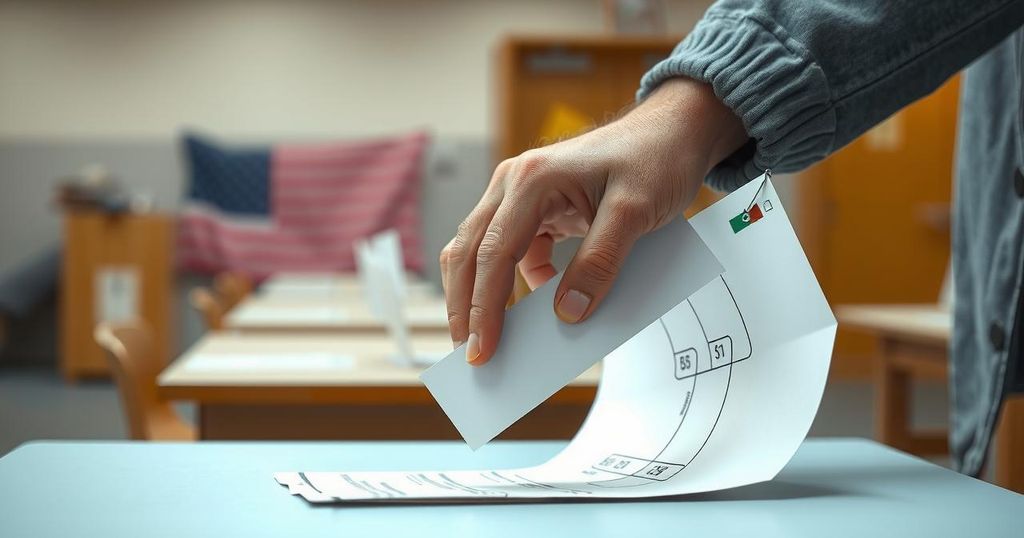Chad Holds General Election Amid Opposition Boycott and Low Turnout

Chad held a general election aimed at ending military rule, but saw low turnout due to an opposition boycott, with only 38 percent participating. Opposition leaders argued that the election results were predetermined, while President Mahamat Idriss Deby encouraged voter participation amid claims of electoral malpractice. The election acts as a pivotal point for Chad’s transition to democracy following years of military control.
Chad conducted a general election on Sunday, pivotal in moving towards the end of military governance, though low turnout was anticipated following a boycott by opposition parties. Turnout was reported at only 38 percent, a figure attributed to both voter disillusionment and inclement weather as explained by election officials. Opposition leader Succes Masra asserted that most voters heeded the call to abstain, prompting concerns about the legitimacy of the process. President Mahamat Idriss Deby Itno urged citizens to participate, branding the day as significant. Despite this, skepticism persisted among various citizens who questioned the election’s integrity, while soldiers and police had already voted earlier.
Polling activity continues against a backdrop of regional instability and accusations of electoral malpractice. Observers from foreign entities have been deployed to oversee the casting of ballots, amid claims of ballot tampering reported by opposition factions. The government frames this election as critical for democratization following Deby’s ascent to power in 2021 after the demise of his predecessor, his father, who had dominated the governance for thirty years.
Chad has been under military rule since the death of former President Idriss Deby in April 2021, which led to his son, Mahamat Idriss Deby Itno, assuming power. The recent elections are portrayed by the government as a key step toward restoring democratic order. However, opposition parties have raised substantial allegations regarding electoral integrity and express concerns that the process is a mere facade that lacks legitimacy. The opposition’s boycott signifies widespread disenchantment with the current political landscape, amidst ongoing socio-economic challenges.
The general election in Chad, marked by significant opposition boycott and reluctance among voters, underscores a critical moment in the country’s political evolution. While the government claims the election is a step towards ending military rule, the low turnout and allegations of pre-determined results cast doubts on its integrity. With skepticism from both the populace and opposition parties regarding the election’s validity, Chad’s path towards genuine democracy remains fraught with challenges and questions about its governance.
Original Source: www.rfi.fr








